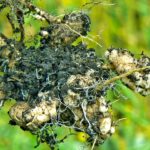
Comment: Combining work, life and farm safety
Keeping kids safe on the farm is a complex balance

Organic farmers don’t get a pass on clubroot
Clubroot can also infect mustard, radish and other brassicas

Opinion: Liability hampers autonomous ag
Editorial: The changing faces of agriculture
Editorial: Meeting in the middle
Editorial: The meat industry has a lot on its plate
Comment: A more transparent regulatory system is key to public trust
The deepening controversy over glyphosate is only the tip of the iceberg
Editorial: Volatility likely to linger

Editorial: Feeding the world — but with what?

Comment: Expect the unexpected in push to build plant protein sector
Demand will rise, but new pulse supercluster will have to be nimble to seize opportunity


